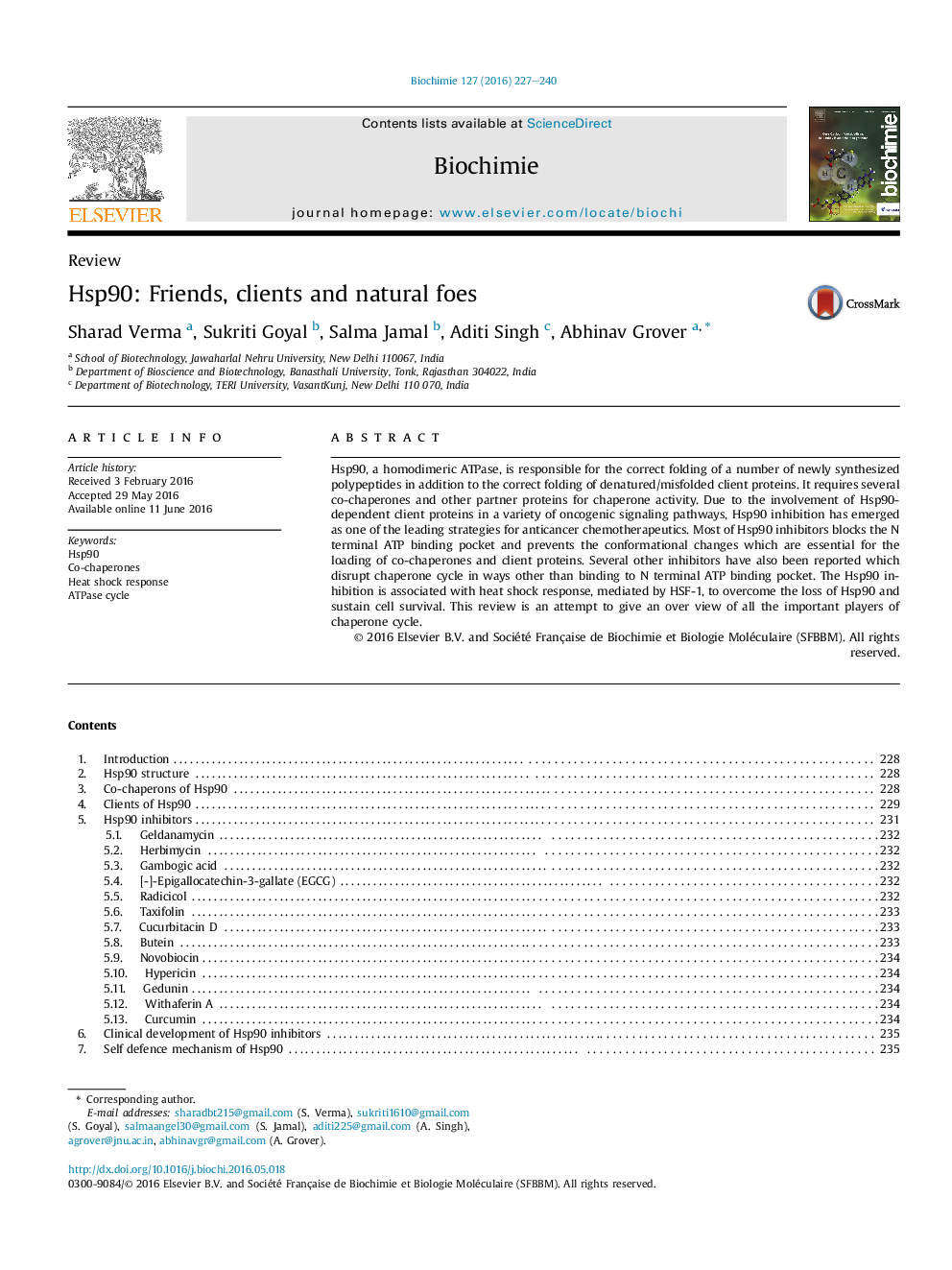| Article ID | Journal | Published Year | Pages | File Type |
|---|---|---|---|---|
| 8304296 | Biochimie | 2016 | 14 Pages |
Abstract
Hsp90, a homodimeric ATPase, is responsible for the correct folding of a number of newly synthesized polypeptides in addition to the correct folding of denatured/misfolded client proteins. It requires several co-chaperones and other partner proteins for chaperone activity. Due to the involvement of Hsp90-dependent client proteins in a variety of oncogenic signaling pathways, Hsp90 inhibition has emerged as one of the leading strategies for anticancer chemotherapeutics. Most of Hsp90 inhibitors blocks the N terminal ATP binding pocket and prevents the conformational changes which are essential for the loading of co-chaperones and client proteins. Several other inhibitors have also been reported which disrupt chaperone cycle in ways other than binding to N terminal ATP binding pocket. The Hsp90 inhibition is associated with heat shock response, mediated by HSF-1, to overcome the loss of Hsp90 and sustain cell survival. This review is an attempt to give an over view of all the important players of chaperone cycle.
Related Topics
Life Sciences
Biochemistry, Genetics and Molecular Biology
Biochemistry
Authors
Sharad Verma, Sukriti Goyal, Salma Jamal, Aditi Singh, Abhinav Grover,
